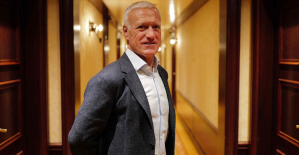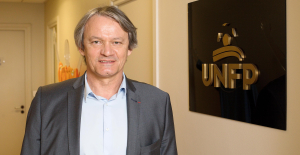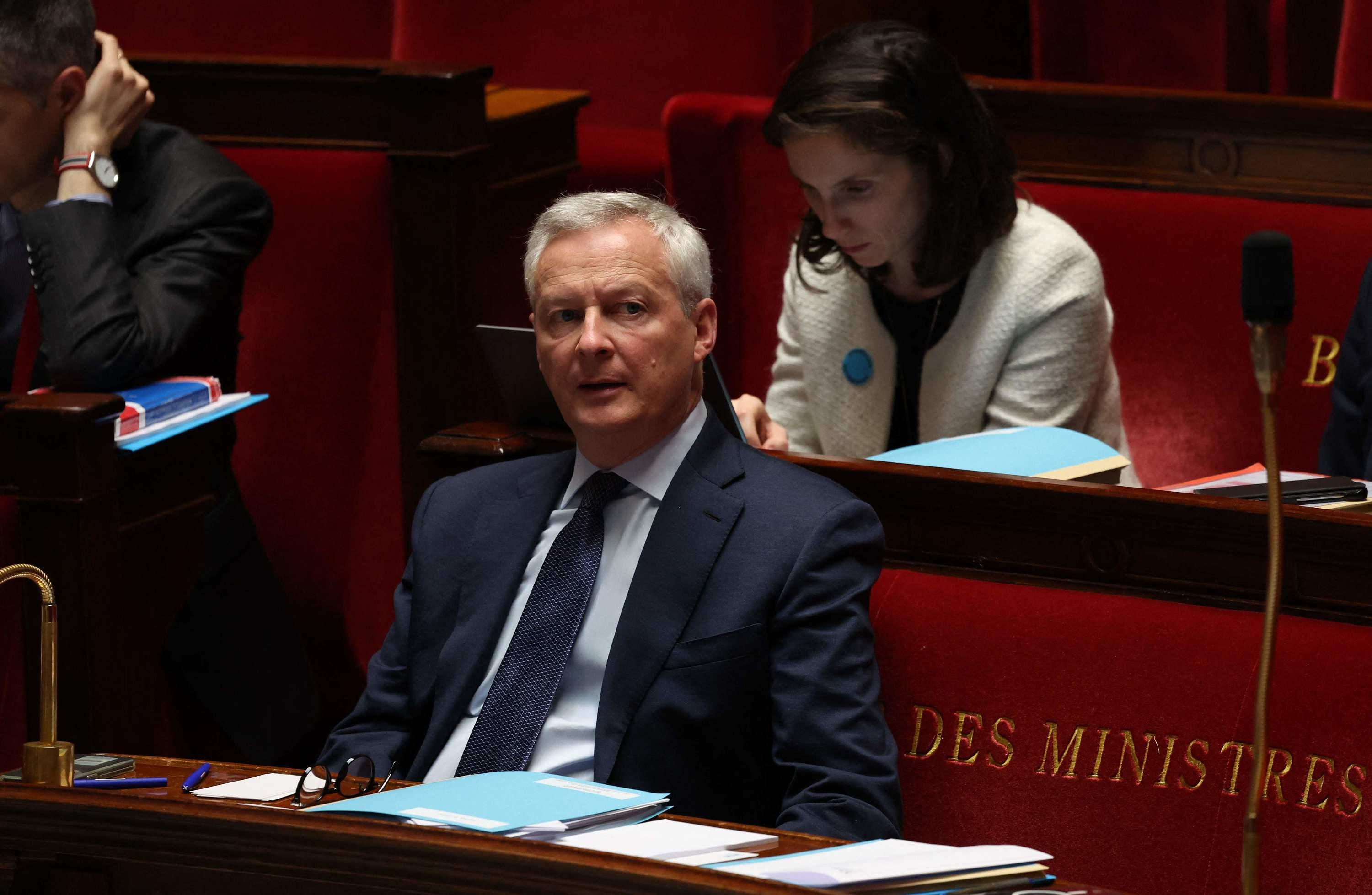In view of the current crisis situation, representatives of the German economy are warning of a massive weakening of Germany as a business location. Politicians from the coalition and opposition are alarmed and are calling for or announcing comprehensive measures to protect the economy in WELT AM SONNTAG.
“The high energy prices and the weakening economy are hitting the German economy with full force and are a great burden on our companies compared to other international locations. The German business model is under enormous stress,” said Tanja Gönner, General Manager of the Federation of German Industries (BDI). Currently, "every fourth German company is thinking about relocating production abroad".
Many companies are suffering from the high energy prices as a result of the Russian invasion of Ukraine, from disrupted supply chains or restrictions from the rigid fight against the corona pandemic in China. The decisions of the US government to combat inflation, which include billions in subsidies for new technologies and a sustainable expansion of American industry, are seen as another major risk.
The energy-intensive and export-oriented chemical industry in Germany is particularly affected by the current turmoil. “Brutal energy prices are knocking us out. We are very concerned that the double boom will not reach our company," said Wolfgang Große Entrup, Managing Director of the German Chemical Industry Association (VCI).
"Without a functioning price brake, the government willingly accepts de-industrialization." If the chemical industry collapses, other sectors will also collapse. "That can be the knockout for Germany as a location," warned Große Entrup. Employer President Rainer Dulger calls for “more dynamism and speed, more entrepreneurial freedom and flexibility on the labor market. Germany must be unleashed and not tied down by politics,” said Dulger. "Otherwise Germany will move unchecked towards a dangerous turning point."
The mood in the German economy unexpectedly improved significantly in November. The recession is likely to be less deep than many had expected.
Source: WORLD
The traffic light alliance and Union politicians are increasingly aware of the growing dangers. “We have to be careful not to simultaneously deprive the companies we expect to invest from of liquidity and at least some of them to leave. But that's what we're doing right now," said Deputy FDP leader and Bundestag Vice President Wolfgang Kubicki in an interview with WELT AM SONNTAG. “An example: Even if we should be so far in March that the price brakes take effect, this means for companies that they will have to accept liquidity bottlenecks of a magnitude that should not be underestimated in January and February. If at the same time the supply chain law and other rules increase the bureaucratic effort and inflation remains high, "then this is a highly threatening scenario that could plunge our companies and small and medium-sized businesses into a serious crisis," says Kubicki.
The SPD was recently alarmed by the US government's “Inflation Reduction Act”. The law will provide $386 billion in tax breaks and incentives to, among other things, strengthen US industry and encourage companies to invest in renewable technologies. "In order not to fall behind, we have to fight back," said SPD deputy parliamentary group leader Matthias Miersch. “We need massive investments and an offensive settlement policy. In addition, our approval processes must become faster, simpler and more pragmatic.”
The Ministry of Economic Affairs, led by Robert Habeck (Greens), warns of a subsidy race in view of the US decision. "We will have to give our own European answer that puts our strengths forward," the ministry said. In addition to subsidies, “structural reforms are now necessary, above all the acceleration of planning and approval procedures and the reduction of bureaucracy”. CDU presidium member Jens Spahn calls for a three-point plan: the introduction of discounted industrial electricity, the promotion of key domestic industries and the conclusion of new trade agreements.
"Kick-off Politics" is WELT's daily news podcast. The most important topic analyzed by WELT editors and the dates of the day. Subscribe to the podcast on Spotify, Apple Podcasts, Amazon Music, among others, or directly via RSS feed.

 Russia: schools will train children to use drones at the start of the school year
Russia: schools will train children to use drones at the start of the school year Austria: incestuous torturer Josef Fritzl, nicknamed the “national monster”, could soon be released
Austria: incestuous torturer Josef Fritzl, nicknamed the “national monster”, could soon be released An airline continues to treat a centenarian as a one-year-old baby
An airline continues to treat a centenarian as a one-year-old baby Germany: the trial of nine “Citizens of the Reich” conspirators begins this Monday
Germany: the trial of nine “Citizens of the Reich” conspirators begins this Monday Sánchez cancels his agenda and considers resigning: "I need to stop and reflect"
Sánchez cancels his agenda and considers resigning: "I need to stop and reflect" The Federal Committee of the PSOE interrupts the event to take to the streets with the militants
The Federal Committee of the PSOE interrupts the event to take to the streets with the militants Repsol: "We want to lead generative AI to guarantee its benefits and avoid risks"
Repsol: "We want to lead generative AI to guarantee its benefits and avoid risks" Osteoarthritis: an innovation to improve its management
Osteoarthritis: an innovation to improve its management The French will take advantage of the May bridges to explore France
The French will take advantage of the May bridges to explore France Organic flour contaminated by a recalled toxic plant
Organic flour contaminated by a recalled toxic plant 2024 Olympics: Parisian garbage collectors have filed a strike notice
2024 Olympics: Parisian garbage collectors have filed a strike notice Controversial free trade deal between EU and New Zealand comes into force this Wednesday
Controversial free trade deal between EU and New Zealand comes into force this Wednesday Lang Lang, the most French of Chinese pianists
Lang Lang, the most French of Chinese pianists Author of the “New York Trilogy”, American novelist Paul Auster has died at the age of 77
Author of the “New York Trilogy”, American novelist Paul Auster has died at the age of 77 To the End of the World, The Stolen Painting, Border Line... Films to watch this week
To the End of the World, The Stolen Painting, Border Line... Films to watch this week Omar Sy on all cultural fronts
Omar Sy on all cultural fronts Omoda 7, another Chinese car that could be manufactured in Spain
Omoda 7, another Chinese car that could be manufactured in Spain BYD chooses CA Auto Bank as financial partner in Spain
BYD chooses CA Auto Bank as financial partner in Spain Tesla and Baidu sign key agreement to boost development of autonomous driving
Tesla and Baidu sign key agreement to boost development of autonomous driving Skoda Kodiaq 2024: a 'beast' plug-in hybrid SUV
Skoda Kodiaq 2024: a 'beast' plug-in hybrid SUV The home mortgage firm rises 3.8% in February and the average interest moderates to 3.33%
The home mortgage firm rises 3.8% in February and the average interest moderates to 3.33% This is how housing prices have changed in Spain in the last decade
This is how housing prices have changed in Spain in the last decade The home mortgage firm drops 10% in January and interest soars to 3.46%
The home mortgage firm drops 10% in January and interest soars to 3.46% The jewel of the Rocío de Nagüeles urbanization: a dream villa in Marbella
The jewel of the Rocío de Nagüeles urbanization: a dream villa in Marbella Europeans: a senior official on the National Rally list
Europeans: a senior official on the National Rally list Blockade of Sciences Po: the right denounces a “drift”, the government charges the rebels
Blockade of Sciences Po: the right denounces a “drift”, the government charges the rebels Even on a mission for NATO, the Charles-de-Gaulle remains under French control, Lecornu responds to Mélenchon
Even on a mission for NATO, the Charles-de-Gaulle remains under French control, Lecornu responds to Mélenchon “Deadly Europe”, “economic decline”, immigration… What to remember from Emmanuel Macron’s speech at the Sorbonne
“Deadly Europe”, “economic decline”, immigration… What to remember from Emmanuel Macron’s speech at the Sorbonne These French cities that will boycott the World Cup in Qatar
These French cities that will boycott the World Cup in Qatar Foot: Nike partner of the Blues until 2034, “excellent news” according to Didier Deschamps
Foot: Nike partner of the Blues until 2034, “excellent news” according to Didier Deschamps Bayern Munich-Real Madrid: in video, all the goals from the C1 clash
Bayern Munich-Real Madrid: in video, all the goals from the C1 clash Ligue 1: Zaire-Emery, Yoro, Roy, Griezmann... The others nominated for the UNFP Trophies
Ligue 1: Zaire-Emery, Yoro, Roy, Griezmann... The others nominated for the UNFP Trophies Bayern Munich-Real Madrid: in video, the magnificent tifo in tribute to Franz Beckenbauer
Bayern Munich-Real Madrid: in video, the magnificent tifo in tribute to Franz Beckenbauer
















